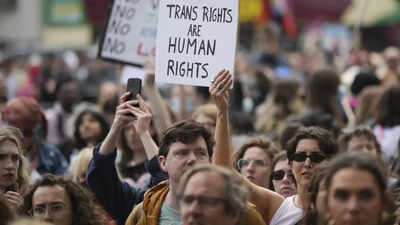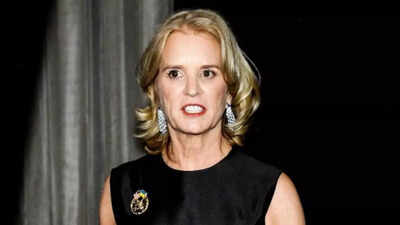Massive Protests Erupt in London and Edinburgh for Trans Rights Following Supreme Court Ruling

On Saturday, a significant wave of protests swept through the streets of London and Edinburgh, where thousands of individuals gathered to voice their dissent against a recent ruling by the UK Supreme Court. This decision, which legally defines a "woman" as someone assigned female at birth, has sparked a fierce debate over gender identity and rights in the UK. Activists, trade union members, and supporters from the LGBTQ+ community turned out in droves, brandishing flags and signs that boldly proclaimed messages such as "trans women are women" and "trans rights are human rights."
The Supreme Court's ruling, released just three days prior, carries profound implications for the rights of trans individuals, particularly concerning access to single-sex spaces and services, which include essential facilities such as toilets, changing rooms, and hospital wards. The court underscored that these services "will function properly only if sex is interpreted as biological sex." This assertion has raised alarms among many within the trans and non-binary communities, who feel that this ruling not only undermines their identities but also exacerbates their vulnerabilities in society.
In London, the atmosphere was charged, and the protests were not without incidents. Police reported that seven statues near the demonstration sites were vandalized, including one dedicated to the iconic suffragette Millicent Fawcett, located in Parliament Square. Such actions added to the tensions surrounding an already heated topic.
Justice Patrick Hodge, who led the bench, stated that he and four other judges reached a unanimous decision that the terms "woman" and "sex" in the Equality Act should refer explicitly to biological definitions. In their ruling, the judges articulated that the language of the lawspecifically, the words "sex," "woman," and "man"was always intended to represent biological sex, biological women, and biological men, respectively.
This landmark decision emerged from a legal conflict between the Scottish government and the advocacy group For Women Scotland (FWS), which had challenged the Scottish governments broader interpretation of the Equality Act, arguing for protections extending to trans women holding a Gender Recognition Certificate (GRC). While the Scottish government maintained that trans women deserved equal protections, the Supreme Court ultimately sided against this view. Notably, the group had previously suffered a defeat in the Scottish courts in 2022 but was later granted permission to escalate their case to the UK Supreme Court, which conducted hearings in November.
The outpouring of support for trans rights seen in cities like London and Edinburgh underscores the growing divide in public opinion on this issue. As the protests unfolded, they not only highlighted the struggles faced by the trans community but also ignited a broader conversation about gender, identity, and the implications of legal definitions in shaping societal norms.

























